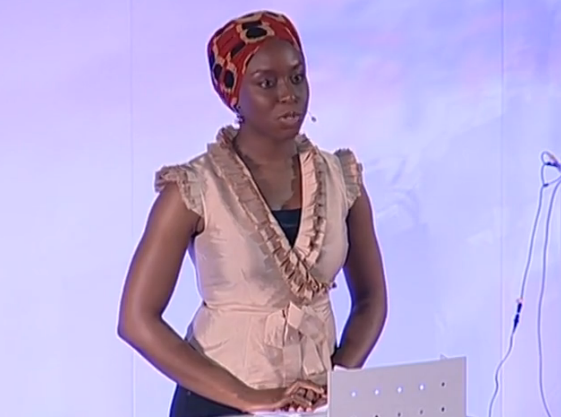I remember walking around on my first day in Guadalajara,
我還記得當我到達瓜達拉哈拉的第一天,
watching the people going to work, rolling up tortillas in the marketplace, smoking, laughing.
看著人們前往工作,在市集上吃著墨西哥卷、抽著煙、大笑著。
I remember first feeling slight surprise. And then, I was overwhelmed with shame.
我記得我剛看到這一切時是何等的驚訝,但隨后我的心中便充滿了羞恥感。
I realized that I had been so immersed in the media coverage of Mexicans
我意識到我當時完全被沉浸在媒體上關于墨西哥人的報道,
that they had become one thing in my mind, the abject immigrant.
以致于他們在我的腦中幻化成一個單一的個體--卑賤的移民。
I had bought into the single story of Mexicans and I could not have been more ashamed of myself.
我完全相信了關于墨西哥人的單一故事,對此我感到無比的羞愧。
So that is how to create a single story, show a people as one thing,
這就是創造單一故事的經過,將一群人一遍又一遍地呈現為一個事物,
as only one thing, over and over again, and that is what they become.
并且只是一個事物,時間久了,他們就變成了那個事物。

It is impossible to talk about the single story without talking about power.
而說到單一的故事,就自然而然地要講到權力這個問題。
There is a word, an Igbo word, that I think about whenever I think about the power structures of the world, and it is "nkali."
每當我想到這個世界的權力結構的時候,我都會想起一個伊博語中的單詞,叫做“nkali”。
It's a noun that loosely translates to "to be greater than another."
它是一個名詞,可以在大意上被翻譯成“比另一個人強大”。
Like our economic and political worlds, stories too are defined by the principle of nkali:
就如同我們的經濟和政治界一樣,我們所講的故事也是建立在nkali的原則上的。
How they are told, who tells them, when they're told, how many stories are told, are really dependent on power.
這些故事是怎樣被講述的、由誰來講述、何時被講述、有多少故事被講述,這一切都取決于權力。
Power is the ability not just to tell the story of another person, but to make it the definitive story of that person.
所謂的權力,不單單是講述一個關于別人的故事的能力,而是將那個故事轉變為關于那個人的決定性故事。











